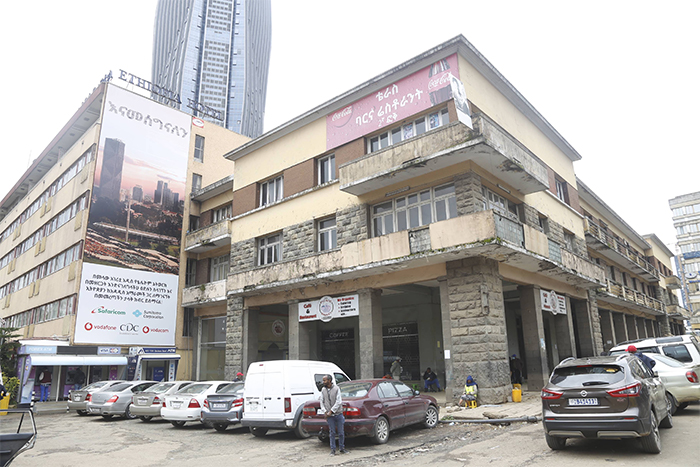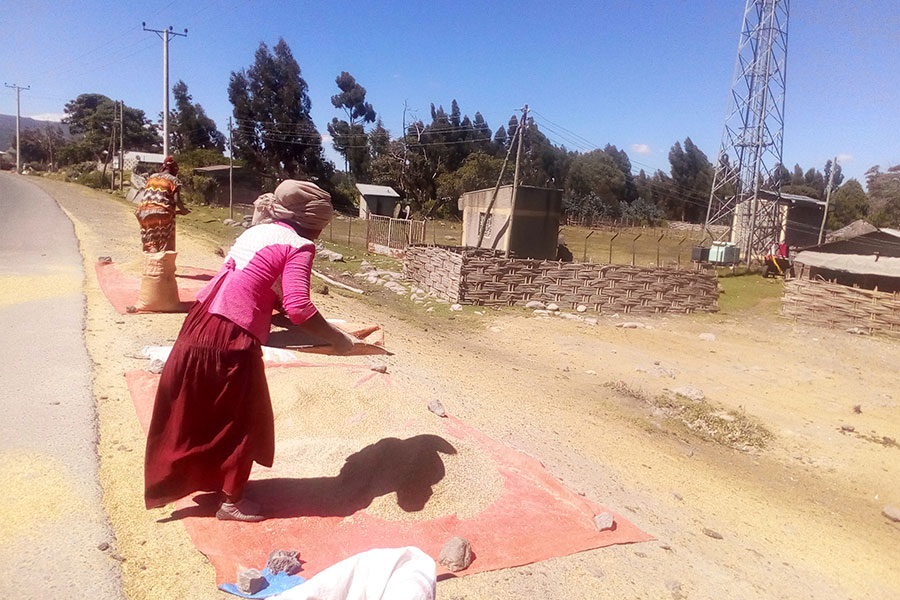
Life Matters | Feb 22,2020
Dec 25 , 2021
By Kidist Yidnekachew
Whenever I find myself worrying about what to wear, Khalil Gibran’s quote on clothes comes to my mind. In his book The Prophet, he describes it this way:
“Your clothes conceal much of your beauty, yet they hide not the unbeautiful. And though you seek in garments the freedom of privacy, you may find in them a harness and a chain.”
Clothes cover but at the same time reveal our bodies perfectly by not exposing our privates and by extenuating what is meant to be seen. We often talk about having the freedom to dress and express ourselves through clothing, but we are also oblivious to how our choices define us.
The same applies to Ethiopia, where people are terrible at following appropriate weather clothing. We could find them walking around wearing a snow coat and big boots in the middle of a hot afternoon. They do not seem bothered by the burning sunlight. They just go about their way without taking off either their coat or one of the layers of clothes they wear inside.
Maybe these people left their homes early or planned to stay up late and left their house prepared for the cold and wind, but what about the heat?
Better hot than cold perhaps for these people. It is mostly women I see with this problem. Men dress pretty much the same in all seasons, although it is common to see men walking around with leather jackets at midday.
I often witness women wearing boots to their knees in the sun. I love boots too, but most are only made for cold seasons. I am guilty of wearing boots all season long too. On the other spectrum of society, we find some folks dressed up in breezy hot weather outfits with short dresses and tops in the middle of kiremt, the rainy season.
And what is it with wearing flip flops in the rain?
Part of the dissonance could be explained due to income. Many people in Ethiopia do not have the luxury of buying, for instance, clothes for the rainy season only to stow them away for the next nine months. If this is the case, then it is hard to blame them for the prices of clothes getting out of hand, especially those considered luxury.
Just the other day, I was surfing through one of the shopping channels on Telegram and what I saw caught my eyes and left me in awe.
Who would spend over 8,000 Br on three pyjamas?
It is insane. Later I was talking with my friend and she was telling me about a person that spent 15,000 Br on shoes and somebody else that spent 25,000 Br on clothes. Most of these items could be well-known brands, but it is hard to believe that they are worth that much, especially in a country where people fight to eat twice a day. Is paying that much on clothes fair? And why did the price of clothes skyrocket when the intrinsic value of luxury brands is virtually inexistent?
It is important in a sense it helps one draw attention to themselves and makes them feel confident. But spending that much on something we do not need is just ridiculous. Then again, we live in a material world.
Here is a word to the wise. There are these things called second-hand clothes. Not only are they better than some new clothes, but they are also unique, and the chances of us running into someone who is wearing the same outfit as us on the road is rare. Here is the best part - they are ridiculously cheap. And in countries like Denmark, people exchange the clothes they wore not to spend money on new ones and it is not like these people cannot afford it, but they know it is not worth spending money over. Do not be embarrassed to assess the market. Buying second-hand clothes does not make us appear any less classy.
PUBLISHED ON
Dec 25,2021 [ VOL
22 , NO
1130]


Life Matters | Feb 22,2020

Fortune News | Aug 17,2019

My Opinion | Sep 10,2021

Covid-19 | May 31,2020

Editorial | Oct 16,2021

Fortune News | Jul 18,2021

My Opinion | Mar 06,2021

Commentaries | Sep 30,2023

Commentaries | Mar 20,2021

Radar | Jan 05,2019

My Opinion | 131981 Views | Aug 14,2021

My Opinion | 128369 Views | Aug 21,2021

My Opinion | 126307 Views | Sep 10,2021

My Opinion | 123925 Views | Aug 07,2021

Dec 22 , 2024 . By TIZITA SHEWAFERAW
Charged with transforming colossal state-owned enterprises into modern and competitiv...

Aug 18 , 2024 . By AKSAH ITALO
Although predictable Yonas Zerihun's job in the ride-hailing service is not immune to...

Jul 28 , 2024 . By TIZITA SHEWAFERAW
Unhabitual, perhaps too many, Samuel Gebreyohannes, 38, used to occasionally enjoy a couple of beers at breakfast. However, he recently swit...

Jul 13 , 2024 . By AKSAH ITALO
Investors who rely on tractors, trucks, and field vehicles for commuting, transporting commodities, and f...

Jul 5 , 2025
Six years ago, Ethiopia was the darling of international liberal commentators. A year...

Jun 28 , 2025
Meseret Damtie, the assertive auditor general, has never been shy about naming names...

Jun 21 , 2025
A well-worn adage says, “Budget is not destiny, but it is direction.” Examining t...

Jun 14 , 2025
Yet again, the Horn of Africa is bracing for trouble. A region already frayed by wars...

Jul 6 , 2025 . By BEZAWIT HULUAGER
The federal legislature gave Prime Minister Abiy Ahmed (PhD) what he wanted: a 1.9 tr...

Jul 6 , 2025 . By YITBAREK GETACHEW
In a city rising skyward at breakneck speed, a reckoning has arrived. Authorities in...

Jul 6 , 2025 . By NAHOM AYELE
A landmark directive from the Ministry of Finance signals a paradigm shift in the cou...

Jul 6 , 2025 . By NAHOM AYELE
Awash Bank has announced plans to establish a dedicated investment banking subsidiary...